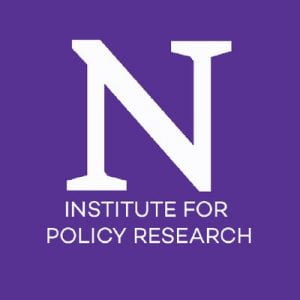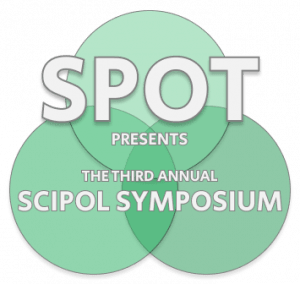Thank you to all who attended the 4th Annual SciPol Symposium! Keep an eye out for the details on next year’s 2023 symposium.
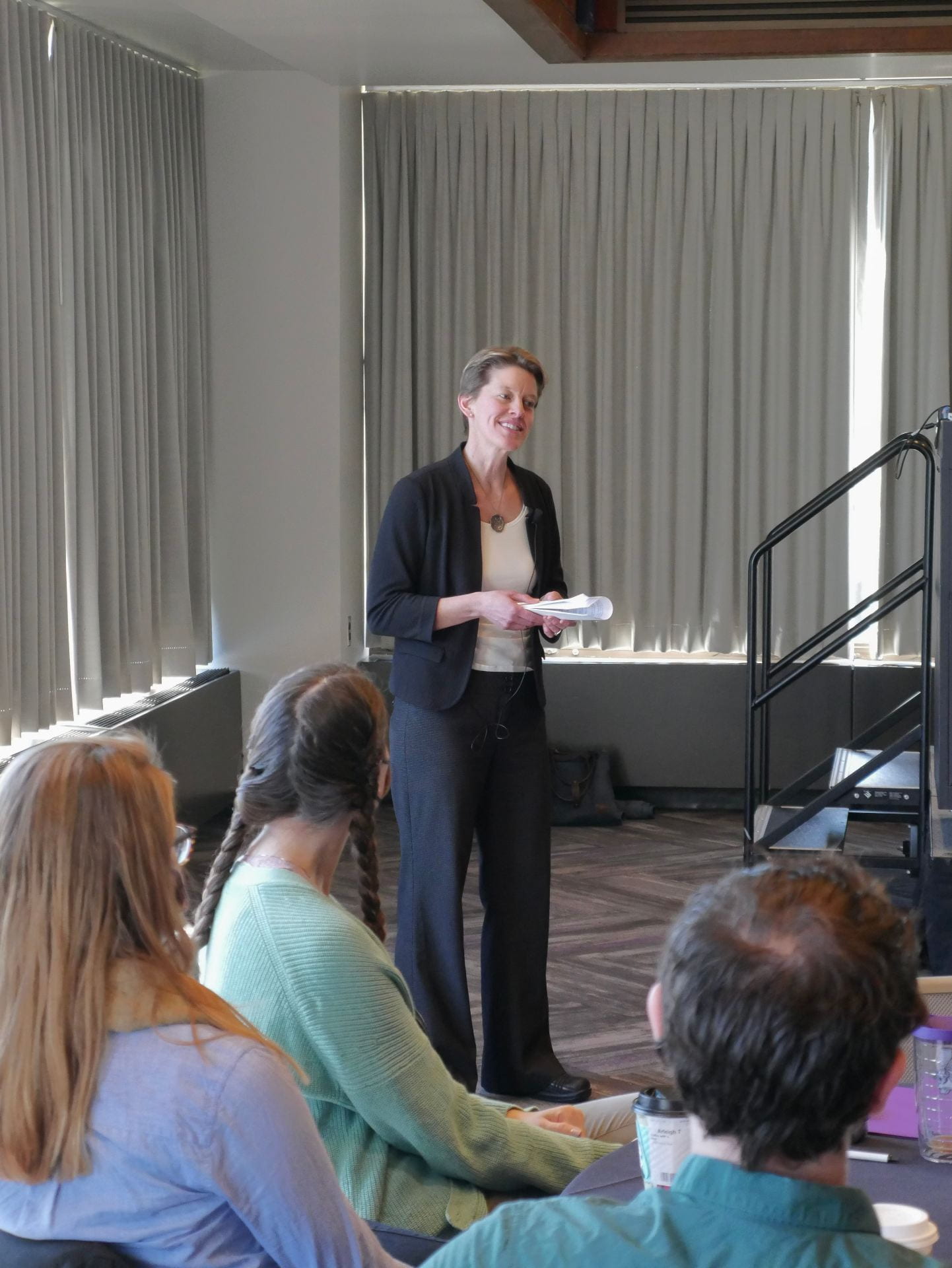
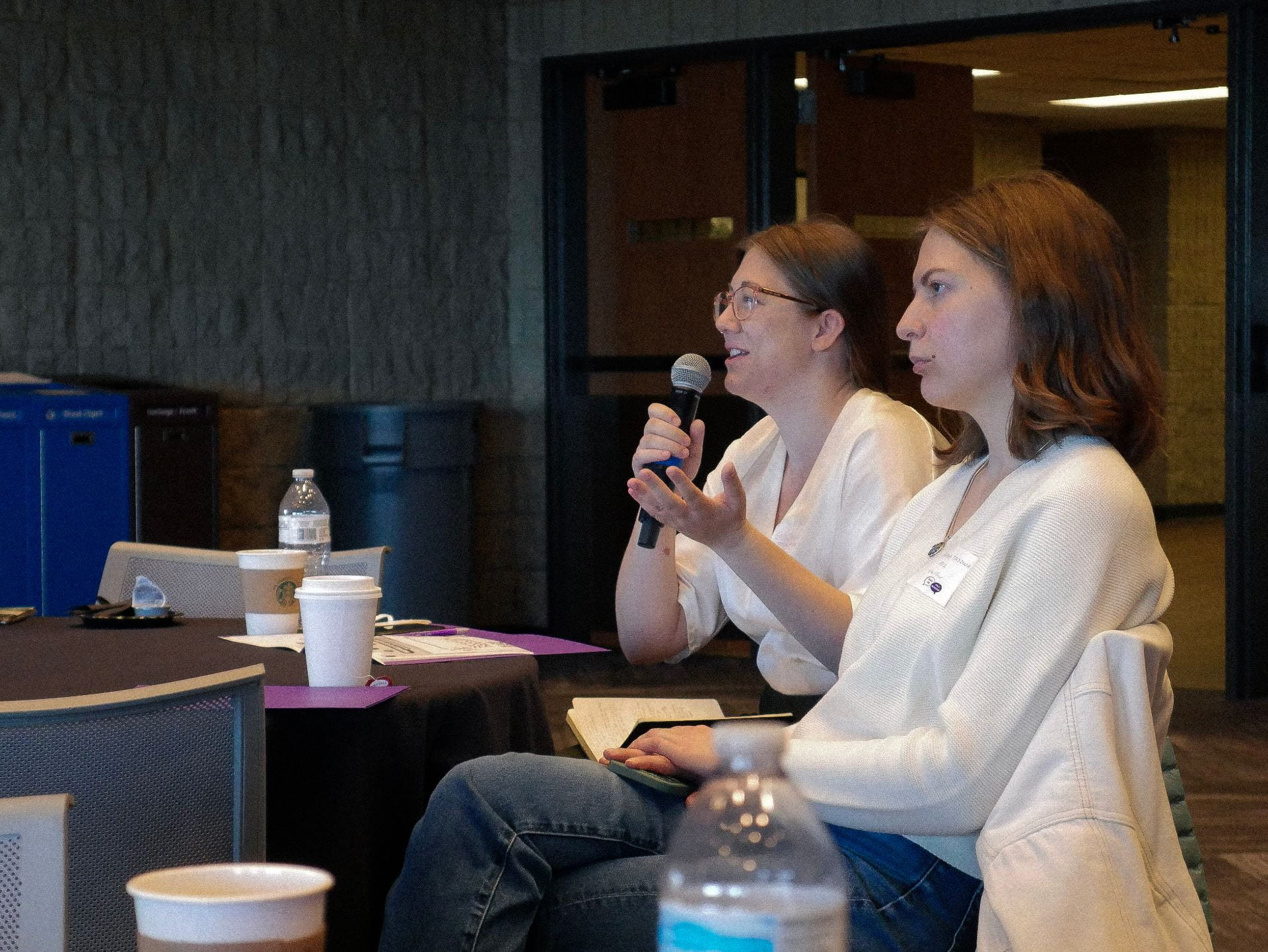
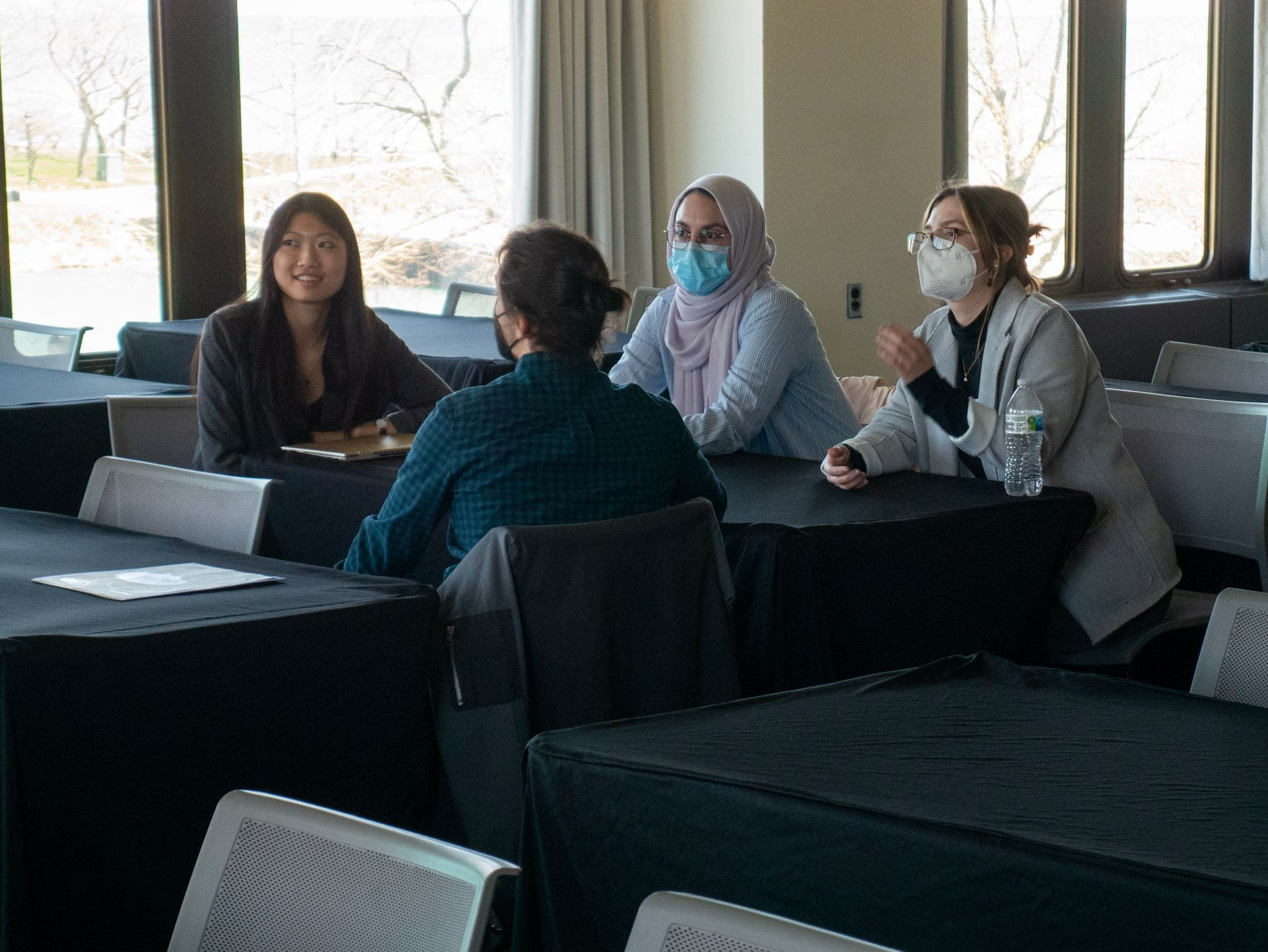
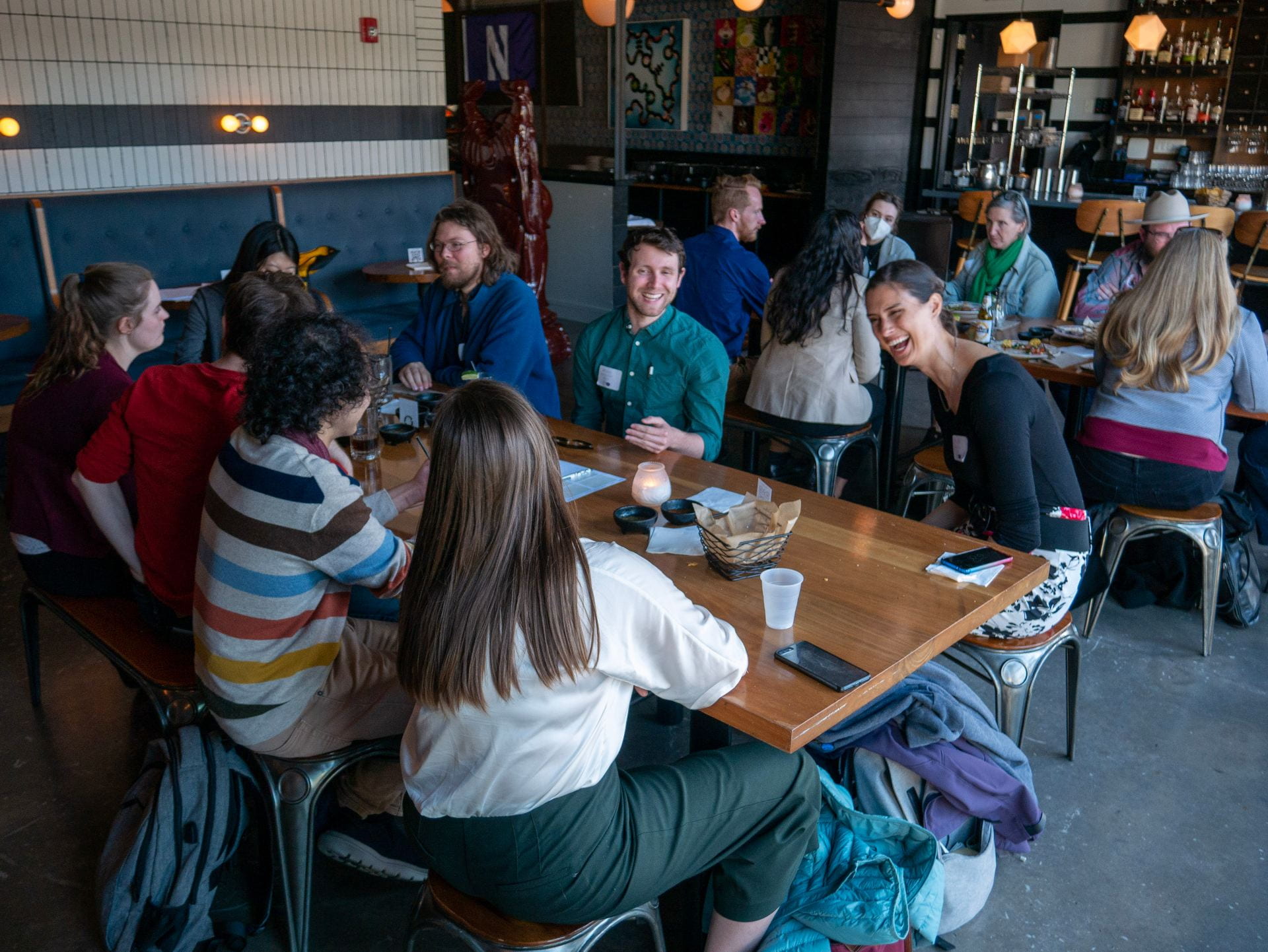
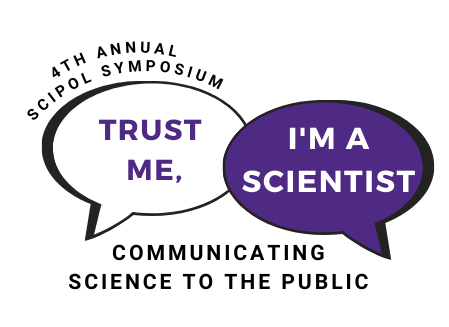
When: Saturday, May 7, 2022 | 9:30 AM – 4:00 PM
Where: Northwestern University – Norris University Center and Virtual
Public trust in science is always evolving, and questions surrounding how science is practiced, trustworthiness of information sources, and the persistence of science myths are growing day by day. Therefore, SPOT’s 4th Annual SciPol Symposium will focus on how and why the public chooses to trust scientists and their research, emphasizing the links between science policy and communication. Through this programming, scientists will be empowered to share their own research stories to the public, with the goal of positively influencing policy and public perception of science.
See below for information on lectures, panels, workshops, schedule id , and registration. Contact spotforcenu@gmail.com with any questions!
_____________________________________________________________________________
Keynote Lecture – “Science in Real Time: What we can learn from play-by-play pandemic coverage and the intersection of research and the public”
Speaker: Becky Lang – Former Editor-in-Chief of Discover Magazine, Freelance Health and Science Editor, and Northwestern Alumna (Medill School of Journalism, BS)
Description: Explaining how science is relevant to all of us is already a tough job. Toss in a novel virus that spreads around the world, add to it some of the starkest politicization we’ve seen in decades and top it off with journalists who suddenly find themselves non-experts in an experts’ field, and you’ve got the recipe for a public that’s confused, exasperated and looking for answers.
Our keynote lecture from Becky Lang will address the fundamental themes of how science shapes public life, how the media facilitates these relationships and how the public decides to place trust in science – if they choose to in the first place. From a local to a national scope, Becky’s perspectives on how to hook a reader into a story and how she mediates scientists, journalists and the public will shape every scientist’s efforts to build trust with the public.
_____________________________________________________________________________
Panel Discussion – “Professional Perspectives on Science Communication”
Panelists
- Cyatharine Alias – Manager at Center for Neighborhood Technology (Urban Sustainability and Equity)
- Cara Pratt – City of Evanston Sustainability and Resilience Coordinator
- Dr. Kyle Dolan – Head of Science and Innovation at British Consulate-General Chicago, Ph.D. in Biochemistry and Molecular Biology
This panel will focus on how science communication and policy go hand in hand, ranging from perspectives in international policy to data visualization. This event will start with select questions in the first half and open up to general Q&A in the second half. Topics will include but are not limited to career trajectory, personal experiences with bridging science and policy, how to overcome specific barriers in communicating science to the public, how the current climate has altered interactions with the public, and how scientists can move things forward with public trust in science.
_____________________________________________________________________________
Workshops
Session 1 – “Combating Disinformation: The Role of Science in Voter Rights Advocacy”
*In-person only
Presenter(s): Union of Concerned Scientists (UCS) and Science Rising
-
Linda Trey – Community and Partnerships Organizer for the UCS Clean Transportation Team
-
David Combs – Acting Campaign Manager for the UCS Global Security Program
Description: Now more than ever there is a need for scientists to be actively involved in civic life and conversations about policy. In this workshop from UCS and Science Rising, participants will learn how to identify and counter disinformation in order to more effectively advocate for evidence-based policy.
Outcomes:
- Identify disinformation and the negative impacts associated with it
- Construct counternarratives to combat disinformation
- Learn how to increase you and your peers’ civic engagement
Session 1 – “Stop the Doom Scrolling: Communicating Science in the Modern Era of Distractions”
*Virtual option offered
Presenter(s): Dr. Vince Tedjasaputra, Director of Scientific Communications at American Lung Association, Ph.D. in Pulmonary Physiology
Description: Today, we’re all distracted by everything from the 24-hour news cycle, to email overload, to doom scrolling on social media – how can science communicators hope to break through the noise? The key is to customize messages for each audience in a visually appetizing way, but staying true to the science.
Outcomes:
- Cover common content missteps we make as scientists and best practices for more effective and engaging presentations of data—presentations that encourage discussion, collaboration, and engagement on social media.
- Discuss how attendees can improve their own presentations through real-life examples
- Learn about powerful presentation tools freely available online
Session 2 – “Forms and Figures: Visual Literacy in Science”
*Virtual option offered
Presenter(s): The University of Illinois at Chicago
-
Kelly Cloninger, Clinical Assistant Professor in Biomedical Visualization
-
Sam Bond, Associate Program Director for Undergraduate Education – Life Science Visualization
Description: Images and figures are central to understanding and communicating science, but visual literacy is often not a formal part of scientific training. In this interactive workshop, our speakers will illuminate how scientists can use elements of visual design to convey compelling messages, both beautifully and efficiently.
Outcomes:
- Learn principles of visual design relevant to the scientific fields
- Think about new ways to visualize data in figures and other visual formats
- Interact with figures and identify what elements can make scientific images more powerful
Session 2 – “New Media, New Audiences: Audiovisual #SciComm”
*In-person only
Presenter(s):
-
Emily Schafer – PhD Candidate in Biomedical Engineering at Northwestern University, Founder/Host of “In the SPOTlight” Podcast https://www.spot.northwestern.edu/podcast-in-the-spotlight/
-
Nora Bailey – PhD Candidate in Astronomy and Astrophysics at the University of Chicago, Founder of Nora’s Guide to the Galaxy http://galaxy.nora-bailey.com/linktree
Description: Using different forms of media in your science communication practices can help you reach new audiences with your message! In this workshop, students will be introduced to science communication using audiovisual (AV) technology from two PhD students with experience in podcasting and TikTok video production using science content.
Outcomes:
-
Understand a background on how AV can be successful in science learning in both formal and informal education
-
Learn about how telling a scientific story through AV is similar and different to other media and how to choose the best medium based on your audience and goals
-
Digest examples of excellent science communication in podcasting, TikTok, YouTube, animation, and more
-
Practice translating science knowledge into a captivating and informative story told through AV
-
Gain resources on how to continue learning in AV skills to pursue personal science communication goals
_____________________________________________________________________________
Post-Symposium Networking Reception
Our off-campus networking reception will be held at Five & Dime in Downtown Evanston. Come join us and meet science policy and communication professionals from across the Chicagoland area!
_____________________________________________________________________________
Registration
Register for free using this link. Registration is currently open to students of all levels at Northwestern and external universities until the end of April. We look forward to seeing you on May 7th!
_____________________________________________________________________________
Thank you to our co-sponsors!
![]()
![]()
